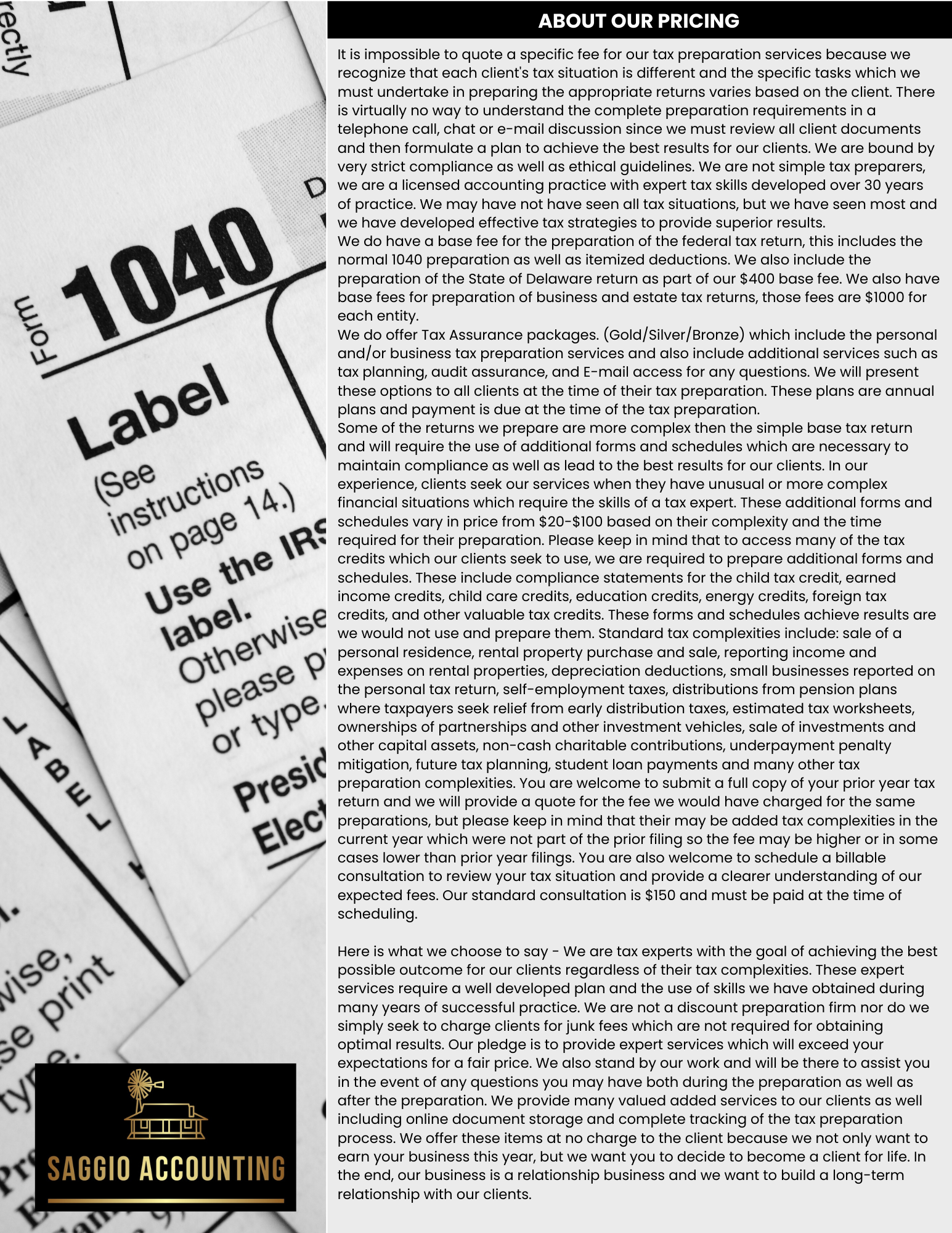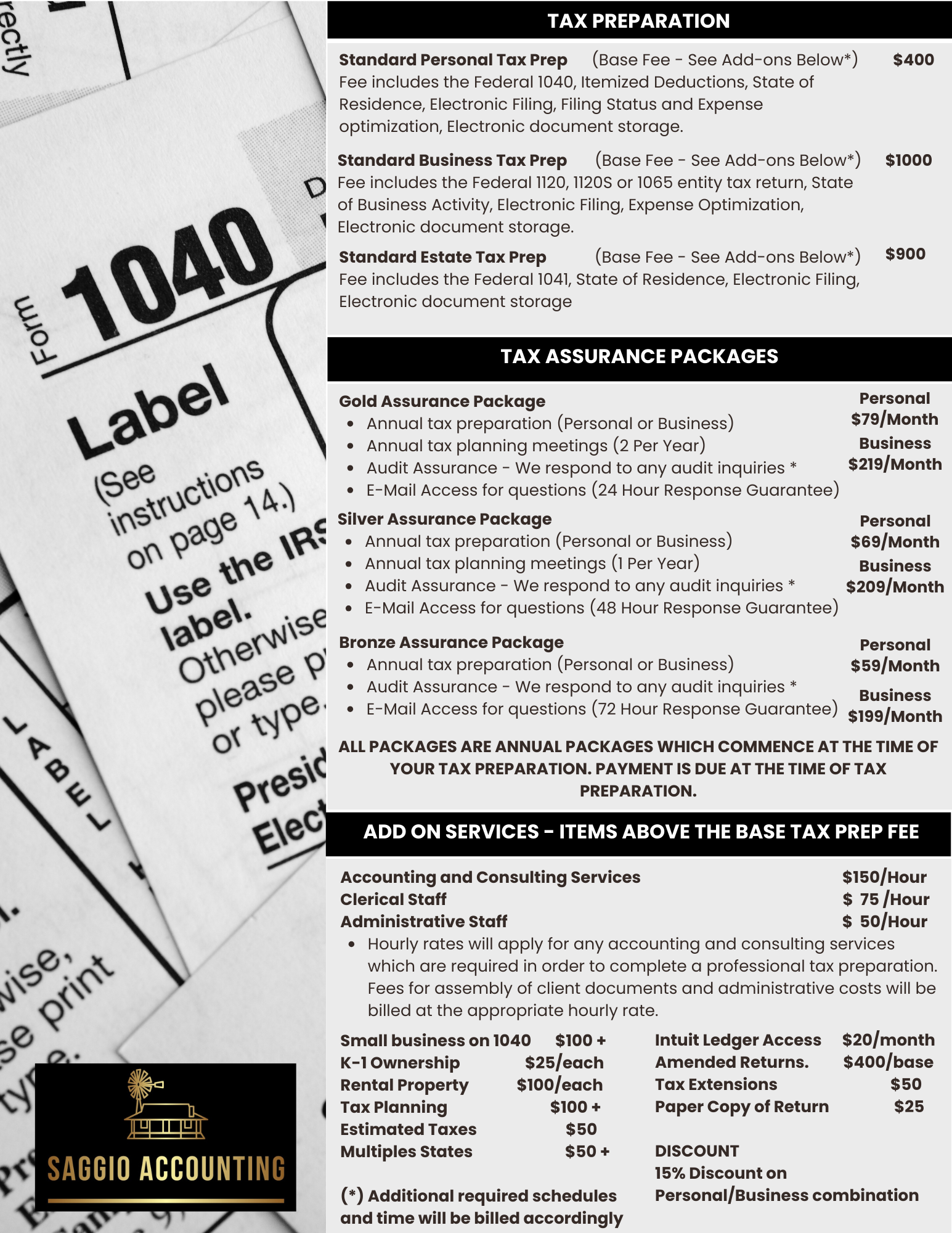Blog
We keep you up to date on the latest tax changes and news in the industry.
Living a Life of Integrity - Honoring God's Commandments

Title: Living a Life of Integrity - Honoring God's Commandments
Introduction:
In today's fast-paced world, the importance of living a life of integrity cannot be overstated. Honoring God's commandments and adhering to a set of moral and ethical principles is not only crucial for personal growth and fulfillment but also has a profound impact on our financial decisions. In this blog post, we will explore how living with integrity can lead to long-term success in all aspects of our lives, including our finances.
Understanding Integrity:
Living a life of integrity goes beyond simply following a set of rules or guidelines. It involves aligning our values and actions in all aspects of our life, including our finances. Integrity requires us to adhere to a set of moral and ethical principles, often derived from our personal values and beliefs. It means prioritizing our relationship with God above all else and not allowing money or material possessions to become our ultimate focus or source of security.
God's Commandments and Financial Decisions:
Drawing insights from God's commandments, we can navigate our financial journey with integrity and make wise decisions. Let's explore some of these commandments and how they relate to our financial choices:
1. "You shall have no other gods before me":
This commandment reminds us to prioritize our relationship with God in all areas of our life, including our finances. It warns against allowing money or material possessions to become our ultimate focus. Instead, we should manage our finances in a way that honors God and reflects our commitment to Him.
2. "You shall not steal":
Honesty and fairness are emphasized in this commandment. It teaches us to respect the property and rights of others. Applying this commandment to our finances means refraining from deceitful practices such as fraud, embezzlement, or misappropriation of funds. Honesty and transparency should be our guiding principles in financial transactions, both in our personal lives and businesses.
3. "You shall not bear false witness against your neighbor":
This commandment emphasizes the importance of truthfulness and avoiding misleading practices. In the financial realm, it encourages us to provide accurate and transparent information to others, whether it's in our tax filings, financial reports, or business transactions. Integrity in our communication and representation of financial matters is crucial.
The Impact of Living a Life of Integrity:
Choosing to live with integrity brings numerous benefits, both personally and financially. By adhering to ethical practices and principles, we protect ourselves from legal troubles and the damaging consequences of unethical behavior. Moreover, we build a strong foundation for long-term success and sustainability.
Living a life of integrity positively impacts our personal lives, bringing a sense of peace of mind, stronger relationships, and a deeper sense of fulfillment and purpose. When we consistently practice integrity in our financial dealings, we build trust with others, cultivate a strong reputation, and open doors to better financial opportunities.
Practical Steps Towards Living with Integrity:
Now that we understand the importance of living a life of integrity in our financial decisions, here are a few practical steps to help us align our actions with God's commandments:
1. Educate yourself on ethical financial practices:
Stay informed about tax laws, business regulations, and compliance requirements specific to your industry. Understanding the rules ensures you are less likely to inadvertently cross ethical boundaries.
2. Establish a personal code of ethics:
Create a set of non-negotiable values that guide your financial decisions. Write them down, review them periodically, and hold yourself accountable to ensure you are consistently making choices that align with your beliefs.
3. Surround yourself with like-minded individuals:
Build a network of trustworthy partners, advisors, and colleagues who share your commitment to integrity. They can provide valuable support and hold you accountable to your ethical values.
4. Seek counsel from trusted mentors or professional advisors:
When faced with challenging ethical dilemmas, seek guidance from individuals who align with your values. Their perspectives can provide clarity and help you navigate through difficult situations.
Conclusion:
Living a life of integrity, honoring God's commandments, is a lifelong commitment that can bring immense personal and financial rewards. By aligning our values with our financial decisions, we cultivate trust, build strong relationships, and position ourselves for long-term success. Let us strive to be good stewards of the financial resources entrusted to us and use them for the glory of God and the well-being of others. Stay financially savvy, and may God bless you abundantly on your journey towards integrity.
Please share our Podcast with all your friends and family!
Submit your questions or ideas for future shows - email us at ralph@askralph.com or leave a voicemail message on our podcast page Leave A Voicemail Message
Like us on Facebook and follow us on Facebook at https://www.facebook.com/askralphmedia Twitter (@askralphmedia) or visit www.askralphpodcast.com for more information.
To schedule a consultation with Ralph's team, contact him at 302-659-6560 or go to www.askralph.com for more information!
Buy Ralph's Book - Mastering Your Finances! on Amazon
Buy Ralph's Book - Gospel of Entrepreneurship: Following Jesus in Your Business Journey
on Amazon
Sign up for our newsletter.
Each month, we will send you a roundup of our latest blog content covering the tax and accounting tips & insights you need to know.
We care about the protection of your data.
TAX ASSURANCE PRICING
Personal Income Tax Services
In addition to our normal tax preparation service, we also offer the Tax Assurance Packages for those clients who want more than just a tax preparation. These packages are annual packages which provide superior tax preparation, tax planning and access to a tax expert via e-mail. All of these additional services are free of charge to those clients who select on of our Tax Assurance Packages.
Bronze Assurance Package
-
Annual Tax Preparation
-
Audit Assistance - We respond to audit inquiries
-
E-Mail Access for questions (72 Hour Response)
Gold Assurance Package
-
Annual Tax Preparation
-
2 Tax Planning Meetings per year
-
Audit Assistance - We respond to audit inquiries
-
E-Mail Access for questions (24 Hour Response)
Silver Assurance Package
-
Annual Tax Preparation
-
Annual Tax Planning Meeting
-
Audit Assistance - We respond to audit inquiries and E-Mail Access for questions (36 Hour Response)
TAX ASSURANCE PRICING
Business Income Tax Services
In addition to our normal tax preparation service, we also offer the Tax Assurance Packages for those clients who want more than just a tax preparation. These packages are annual packages which provide superior tax preparation, tax planning and access to a tax expert via e-mail. All of these additional services are free of charge to those clients who select on of our Tax Assurance Packages. These packages include both the business and personal tax related preparation services.
Bronze Assurance Package
-
Annual Tax Preparation (Business and Personal)
-
Audit Assistance - We respond to audit inquiries
-
E-Mail Access for questions (72 Hour Response)
Gold Assurance Package
-
Annual Tax Preparation (Business and Personal)
-
2 Tax Planning Meetings per year
-
Audit Assistance - We respond to audit inquiries
-
E-Mail Access for questions (24 Hour Response)
Silver Assurance Package
-
Annual Tax Preparation (Business and Personal)
-
Annual Tax Planning Meeting
-
Audit Assistance - We respond to audit inquiries and E-Mail access for questions (48 Hour Response)

